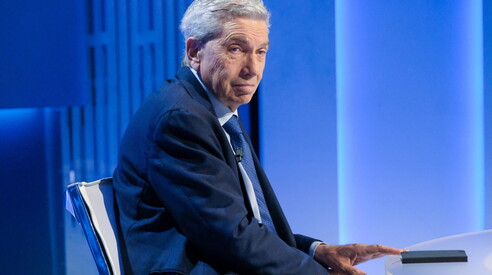Padellaro does not give up and reiterates the tale of the Letta-Meloni-Nato conspiracy


LaPresse
The cabbage theory
Emiliano theorizes it, Padellaro relaunches it. But the "withdrawal" strategy between the Democratic Party and the Five Star Movement in 2022 is a technical and political illusion: the electoral law contradicts the blueprints. A coalition was enough to win.
Padellaro refuses to give up. In Il Foglio, we contested Michele Emiliano's theory, which he relaunched in Il Fatto Quotidiano, according to which a "withdrawal" agreement between the Democratic Party and the Five Star Movement (M5S) would have been possible in the 2022 elections, but Enrico Letta refused because he had decided to "prevent" Giorgia Meloni from winning. This alluring conspiracy theory doesn't hold up for a simple reason: with this electoral law, the Rosatellum, withdrawal is not possible. But Padellaro isn't having it and is relaunching . "Let's try a little drawing," he writes. "Candidate A of the Five Star Movement asks his voters to transfer their votes to candidate B of the Democratic Party, who is higher in the polls. Or vice versa. This way, by not losing the coalition's support, it will be easier to defeat candidate C of the right. It's a preemptive agreement that, obviously, must first and foremost be acceptable to the leaders of the Five Star Movement and the Democratic Party." And then he adds that “no one can prevent anyone from giving up their votes to give to another.”
Since we're not good at drawing, let's try with words. Trusting in Padellaro's intelligence. What he writes is untenable, because it makes no political sense. According to the current electoral law, the single-member constituency (majoritarian) is closely linked to the multi-member constituency (proportional): you cannot vote for the M5S candidate in the single-member constituency and the PD list in the proportional constituency (or vice versa), under penalty of nullification . The strategy proposed by Emiliano & Padellaro would require that, to concentrate votes on the PD candidate B, who is better placed in the polls, the M5S would also forgo all its list votes in the proportional constituency (or vice versa): in practice, with the uncertainty of the PD winning a seat in the single-member constituency, it would be certain to lose votes and seats in the multi-member constituency. Besides making no technical sense, this strategy would have faced the enormous political difficulty of having to tell voters—constituency by constituency—to vote for a competing list rather than their own, while simultaneously having to make national political communications that would clash with local ones. Madness .
If there were a strong political will to form a pact and the coordination capacity between party A and party B to direct votes constituency by constituency, it would be much easier to reach a coalition agreement. This would involve, exactly as before, selecting a common candidate in single-member constituencies, supported by both party A and party B. This way, there would be no need to ask voters to "return their votes" to another candidate: by placing a cross next to their party symbol, voters automatically vote for the single-member candidate (whether from party A or party B), previously chosen by the coalition following an agreement between the parties within it. This is exactly what the center-right (FdI, FI, Lega) and the center-left (PD, AVS, +E) have done.
Padellaro himself admits that the electoral law works this way, perhaps through a slip of the tongue or a moment of repentance, when he writes: "This way, the coalition's consensus will not be lost." Coalition, indeed. Not "withdrawal," which is an agreement between parties that did not want to form a coalition (withdrawal was technically possible under the Mattarellum law).
It would be enough to admit that you wrote nonsense, or rather, that you believed the nonsense Emiliano said. It happens to everyone, even the best like Padellaro. But no. He doubles down. So he goes from drawing pictures to connecting the dots, as any good conspiracy theorist does, and writes that the "leaf-like gnawing" concerns the hostility toward the "pacifist Giuseppe Conte" and the revelation of the Letta-Meloni-NATO conspiracy: "Without making a big deal out of it, it's so absurd to think that Atlanticist Enrico Letta—one step away from a draw (and perhaps even a narrow victory)—became short-sighted at the thought of the mess in his relations with the White House of the late Joe Biden that the presence of the 5 Star Movement leader in the government majority would surely have caused. You colleagues at Il Foglio, you always so well-informed about the entire globe, high and low, above and below, do you really think that Giorgia Meloni's NATO supergovernment was born under a cabbage?"
This is, in fact, a foolish theory that not even the fervent imagination of Alessandro Orsini could concoct. Dear Padellaro, when pride prevails over intelligence, you risk appearing a bit ridiculous. Without turning the whole thing into a complete mess, is it really that hard to admit you've said something stupid?
More on these topics:
ilmanifesto





